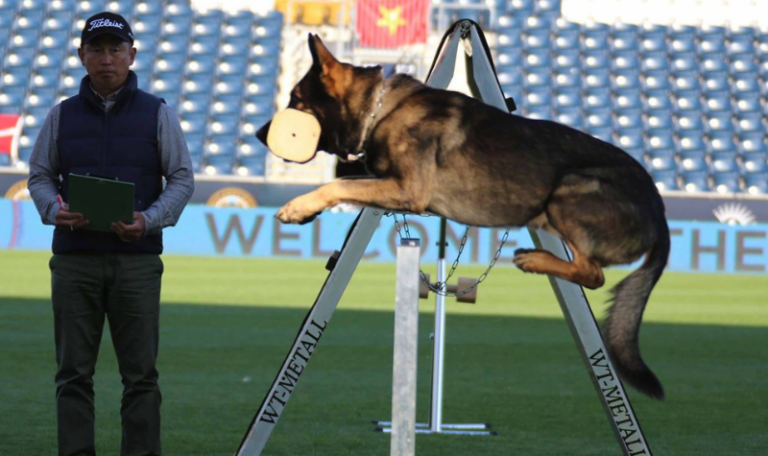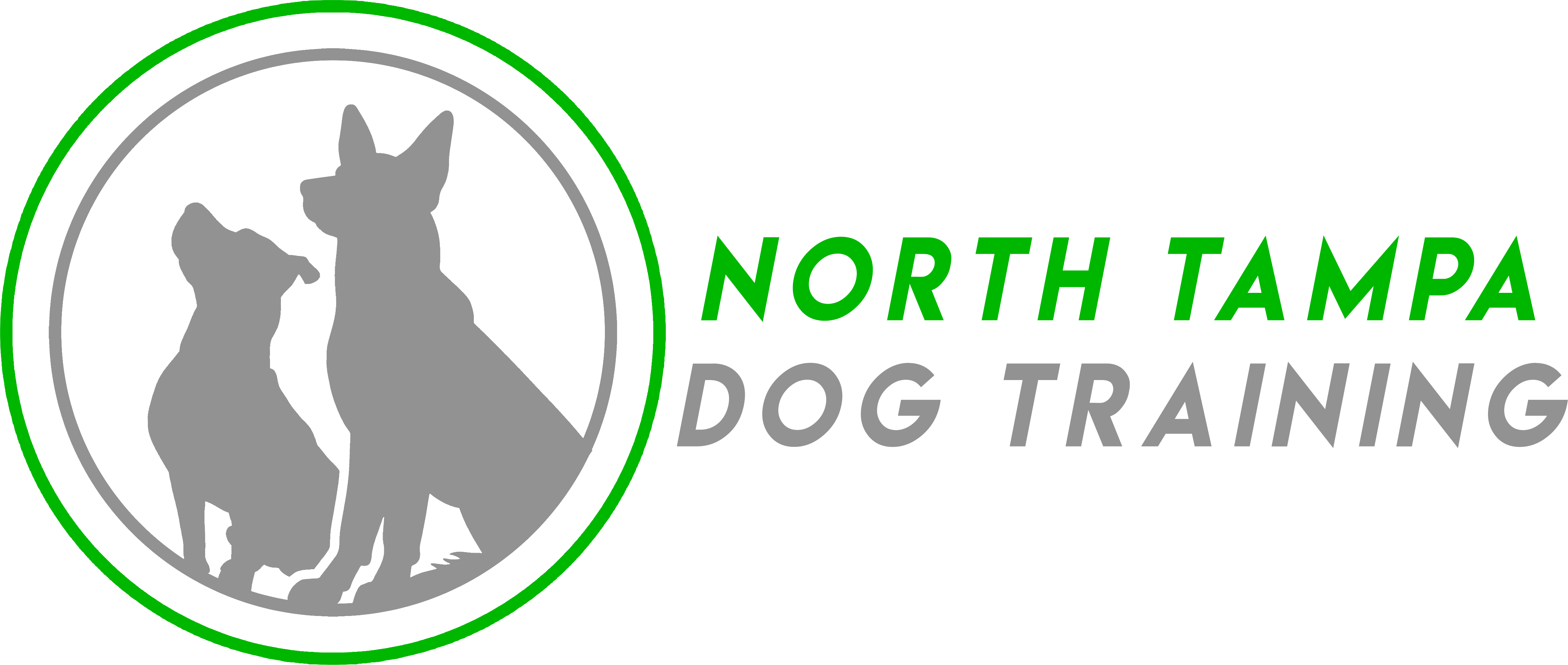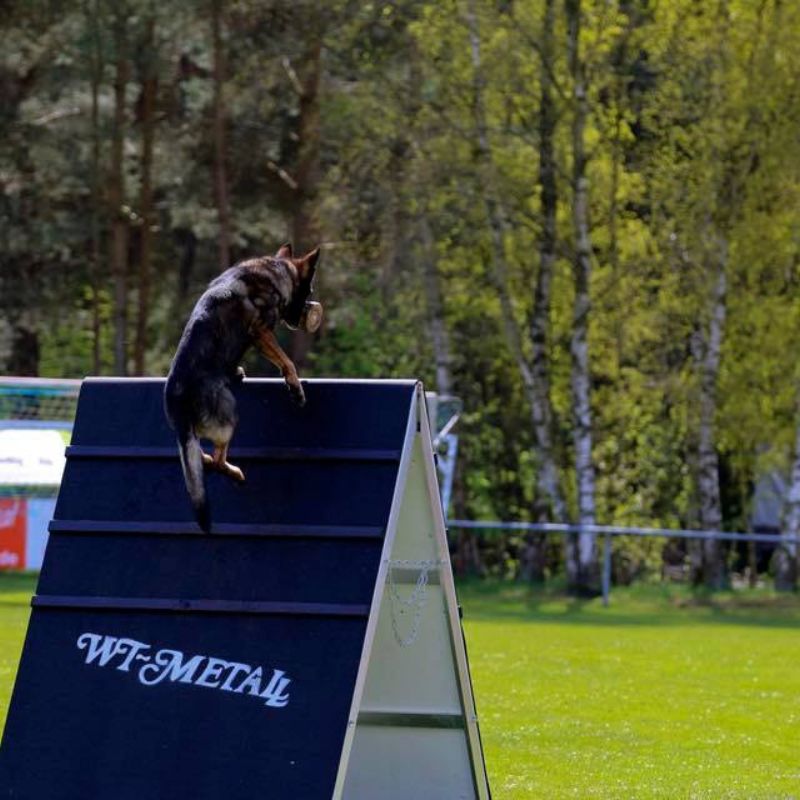When it comes to your dog’s development and behavior, choosing a certified dog trainer can make a world of difference. From basic obedience to specialized training programs, a well-qualified trainer brings expertise, patience, and a deep understanding of canine behavior. This guide explores the benefits of hiring a certified dog trainer in Carrollwood and the transformative impact they can have on your dog’s life. As dog training becomes more specialized, professional trainers not only help in improving behavior but also significantly enhance the quality of life for both dogs and their owners. Certified trainers are equipped with an array of techniques tailored to each dog’s unique temperament, learning speed, and specific needs.
Why Qualifications Matter in Dog Training
Ensuring that your dog trainer has the right qualifications is essential for effective training. As discussed in the blog What Qualifications Should A Dog Trainer Have? qualifications like certifications from reputable organizations indicate a strong foundation in canine psychology and behavior. Qualified trainers understand that each dog is unique and can adapt their training methods to match individual needs, from teaching foundational commands to resolving complex behavioral issues. In Is There Follow-Up Training or Support After the Dog Returns Home? it’s emphasized that qualified trainers often provide continuous support after training, ensuring that behavioral improvements are maintained long-term.
Comprehensive Training Programs
Certified trainers offer a variety of training programs, from obedience to agility, each designed to target specific aspects of a dog’s behavior and development. As mentioned in the blog HOW Long Does A Typical Board And Train Program Last? these programs vary in length and intensity, allowing owners to select one that best suits their dog’s needs. For example, a two-week program might cover basic commands, while a more extended program (up to six weeks) might include behavioral modification and socialization training. Trainers customize programs to cater to a dog’s progress rate and behavioral challenges, ensuring lasting success.
The blog How Does Dog Board and Train Work? highlights how a structured, immersive environment in board-and-train programs can lead to significant improvements. By staying with a trainer, dogs receive uninterrupted, consistent training that builds a foundation for obedience and trust. This type of program is beneficial for dogs that need to focus without external distractions, especially those with challenging behaviors. Moreover, trainers work to transfer these learned behaviors back to the home environment, ensuring a smooth transition for both dogs and owners.
Positive Reinforcement Techniques
Positive reinforcement is a cornerstone of modern dog training. Rather than relying on aversive techniques, certified trainers utilize rewards such as treats, toys, or praise to reinforce desired behaviors. As covered in the blog The Importance of Positive Reinforcement in Dog Training, this approach strengthens the bond between dog and owner and fosters a sense of cooperation, as opposed to fear. When dogs associate training with positive experiences, they’re more likely to retain new behaviors and respond reliably to commands. Furthermore, the blog How To Maintain Consistency In Obedience Training At Home emphasizes that positive reinforcement techniques need to be consistent to be effective. Trainers educate owners on maintaining these methods at home, ensuring continuity and helping dogs generalize learned behaviors to new environments. This not only solidifies training but also contributes to a harmonious household, as dogs are less likely to exhibit anxiety or aggression when training is positive and consistent.
Specialized Training for Unique Needs
For dogs with specific requirements, such as agility training or therapy dog preparation, certified trainers can provide specialized programs. As discussed in Can Dog Trainers Help With Specific Activities Like Agility Training Or Therapy Dog Training? agility training challenges dogs both physically and mentally, improving their coordination, focus, and obedience. Therapy dog training, on the other hand, teaches dogs to remain calm and supportive in various settings, such as hospitals or schools. Certified trainers ensure that each dog’s training is suitable for their temperament and physical capabilities, which is crucial for the dog’s well-being and success in specialized roles.
Additionally, trainers help owners understand how to manage and reinforce these specialized behaviors at home. In the blog What’s the Difference Between Group Classes and Private Dog Training Sessions? it’s noted that group classes might work for socialization and distractions, whereas private sessions allow for more focused, individualized training. Both methods, offered by certified trainers, play important roles in ensuring that dogs can perform their roles effectively.
In-Home Training Sessions for Personalized Attention
Some dogs benefit greatly from in-home training sessions, where they can learn and practice commands in the environment where they feel most comfortable. Do Dog Trainers Offer In-Home Training Sessions? highlights that training in a familiar setting can reduce anxiety and increase a dog’s responsiveness to commands. In-home training is particularly advantageous for addressing behaviors that occur only in the home, such as excessive barking, jumping, or territorial aggression. Certified trainers can observe the dog’s interactions with family members and tailor training techniques to improve behavior within that specific dynamic.

The Impact of Training Consistency
Consistency is essential for successful dog training. As emphasized in How To Maintain Consistency In Obedience Training At Home, reinforcing learned behaviors across different settings is crucial. Certified trainers help pet owners establish routines and reinforce commands in a way that feels natural, making obedience a seamless part of the dog’s daily life. This approach helps prevent regression and ensures that training results are long-lasting. The blog Common Mistakes to Avoid During Obedience Training for Dogs also sheds light on the importance of avoiding inconsistent cues or reinforcement, which can confuse dogs and undermine progress.
Measuring Progress in Training
One common question is how long it takes to see results from training. As mentioned in the blog How Long Does It Take to See Results from Dog Training Sessions? explains, that progress depends on factors like the dog’s age, breed, and previous experience with training.
For instance, younger dogs might adapt to training faster due to their eagerness to learn, while older dogs may take longer but still show substantial progress with consistent practice. Generally, certified trainers estimate that noticeable improvements can be seen within the first few weeks of regular sessions. As noted in Is There Follow-Up Training Or Support After The Dog Returns Home?, a dedicated trainer will also offer follow-up sessions and support to reinforce progress, helping owners address any setbacks that might arise.
Avoiding Common Training Mistakes
Training a dog requires patience and awareness of common pitfalls. One frequent mistake, as discussed in the blog What Are The Common Mistakes To Avoid During Obedience Training For Dogs?, is a lack of consistency in commands and rewards. Dogs thrive on routine, so altering commands or training methods can confuse them and lead to slower progress. Another common mistake is neglecting to practice training in real-life scenarios, where distractions are present. Certified trainers stress the importance of gradually introducing new environments and distractions to ensure that the dog responds reliably under any conditions.
Incorporating gradual exposure to real-world situations helps reinforce training and teaches dogs how to behave regardless of the setting, an essential factor for long-term success. The blog How to Maintain Consistency in Obedience Training at Home also suggests incorporating training into everyday activities, which makes obedience a natural part of the dog’s routine and strengthens the bond between dog and owner.
Choosing the Right Trainer: Final Considerations
Ultimately, the success of dog training largely depends on the skills and qualifications of the trainer. By opting for a certified trainer with a track record of successful outcomes and positive reviews, dog owners can be confident in their choices. As highlighted in What’s the Difference Between Group Classes and Private Dog Training Sessions? choosing between group classes and private sessions depends on the dog’s individual needs and learning style. Certified trainers can help guide owners in selecting the best approach, ensuring that their pet receives the attention and support required to thrive.
A certified trainer offers not only expertise but also a compassionate approach to training, understanding that each dog’s journey is unique. Whether focusing on obedience, agility, or therapy dog preparation, a skilled trainer will use positive reinforcement techniques, tailored strategies, and ongoing support to create lasting behavioral improvements. This commitment to individualized care fosters a trusting relationship and leads to a more enjoyable training experience for both dog and owner.
Final Thoughts: The Long-Term Benefits of a Certified Dog Trainer
The decision to hire a certified dog trainer is an investment in your dog’s long-term well-being and your own peace of mind. A knowledgeable trainer doesn’t just teach commands; they create a supportive framework for your dog’s development, enabling them to be well-behaved, confident, and emotionally balanced in various situations. As underscored in How Long Does It Take To See Results From Dog Training Sessions?, the time and commitment to a quality training program translate into enduring benefits for both dogs and their owners.
Moreover, professional training promotes safety for both the dog and those around them. By mastering essential commands and appropriate social behavior, your dog can confidently interact in public spaces, which enhances their quality of life. As shared in What Qualifications Should A Dog Trainer Have? a skilled trainer with a comprehensive understanding of canine psychology will empower both the dog and the owner with tools to address behavioral issues constructively.
In summary, certified dog trainers bring a unique blend of knowledge, experience, and empathy to their work. By focusing on positive reinforcement, setting realistic goals, and providing structured follow-up, they lay the foundation for a fulfilling and harmonious relationship between dog and owner. For those in Carrollwood seeking a Dog Trainer or considering a dog board and train program in Carrollwood, choosing a certified professional ensures that you’re making the most informed and beneficial choice for your dog’s future.

